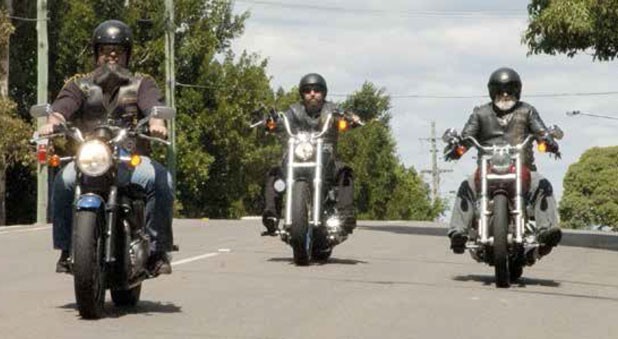Sydney’s Brotherhood Christian Motorcycle Club (CMC) is continuing to minister and conduct outreach to the Australian biker community, through direct mission, through motor show events, and even a free to air television show.
The Club, based on land leased from the Diocese of Sydney in Parramatta in Sydney’s west, has been in operation for over 36 years, and seeks to reach people for Christ while being authentically ‘biker’ in culture. In a political culture where bikers are cast as negative influences, Grant Howard, a member of Brotherhood CMC and pastoral Team Leader with its Street Level Christian Community church plant, says there are many positive aspects of biker culture, and many ways in which Jesus can be made known.
“I think lots of people want to belong, and they want to have a family,” he says. “They want to be cared about, and have genuine mates. At the strongest end of the scene, people in the club are really committed to each other. They’re committed to the lifestyle, riding together, and living life together. People often come from situations where they don’t have particularly strong family, and clubs often meet that role. “
However, there are negative aspects to the culture, according to Mr Howard, where it’s important to provide authentic Christian witness..
“There’s a lot of alcohol in the culture, strippers, things that can easily cause people to stumble in their walk with God,” he says. “And so we’re really careful about being watching that line there.”
Greg Hirst, the head of Brotherhood CMC, says it’s really important to them to maintain the fact that they must “be in the world, but not of it.”
In many cases, its the ability of the Club to maintain a true love of bike culture while also drawing a line of separation when it comes to some activities that has forged the relationships the Club has maintained for decades, not only with bike enthusiasts and the police, but also with one percent, or ‘outlaw’, motorcycle clubs.
“They come knowing that being Christians and talking God stuff is part of how we run an event like a motor show,” says Mr Howard, “but that’s ok because they accept us with that. They may not agree with
it, it may not fit into their lifestyle, and what they’re involved with would not be a part of our lifestyle, but it results in that mutual respect, and opens ways for us to point people to the Gospel in meaningful ways.”
Current projects for Brotherhood include its TV show ‘Temporary Australians’, currently airing its second season on Network Ten’s ONE digital channel, which showcases bike culture and the stories of bikers, both Christian and non Christian.
“There’s a mixture of the real breadth of bike culture, including police clubs, Christian clubs, and one percent clubs,” says Mr Hirst We look at the breadth of the culture, withholding moral judgements, as tastefully as we can. People connect to that... Some of the stuff, I’ve gotten feedback on. One of the testimonies, from a guy named Vic, got some feedback on Facebook, and the guy said he thought it was the best story he’d ever heard. People are listening.”
Tim Robinson, the director of the TV show and currently a ‘nom’, or prospective member of Brotherhood CMC, became involved with the club through his work on the TV show. He says he became a part of the club
scene for the first time through seeing how Brotherhood integrated its faith and its culture.
“To me it felt like a natural thing, because I can integrate my faith with what is now my culture,” says Mr Robinson "I love bikes, I love Jesus, I love documentaries, and they all kind of fit together here".
The Club is now looking to expand its relationships with churches. It’s already planning to bring its experience in motor shows to bear, as it currently runs an annual show called the Silverwater Motor festival.
The club also has experience in counselling and pastoral care, and has a particular heart for men and youth, with many members of Brotherhood having backgrounds in youth work.
Mr Hirst says prayer for the biker community is needed, with many people in the scene thinking through what it means to follow God.
“There’s actually a lot of people trying to figure out the God stuff, just secretly,” he says, “When you’re actually out in their culture, you find this stuff out, because those gospels [copies of Mark’s Gospel published by The Bible Society] are remarkable. At all sorts of motorcycle events, even the wilder ones, people will take a gospel, and they read it.”





























